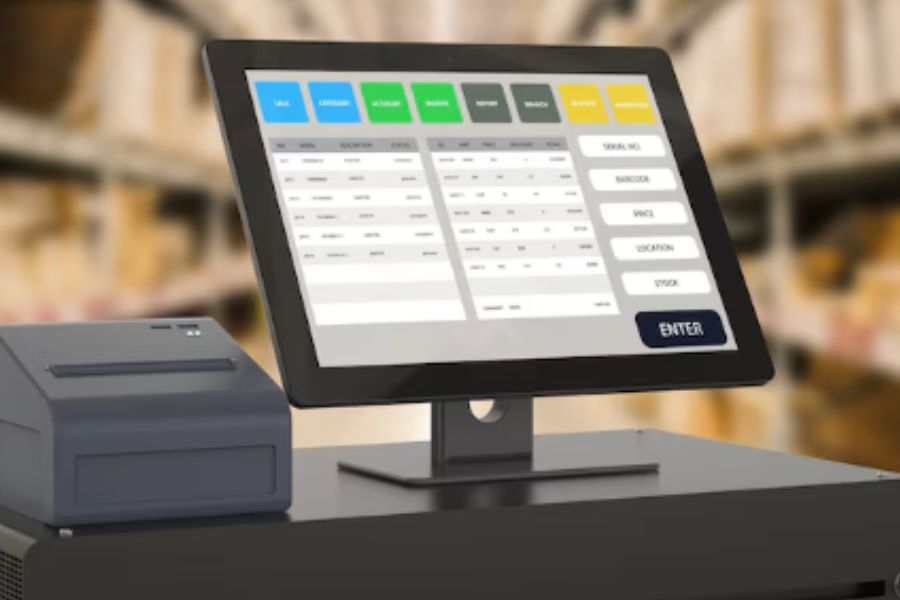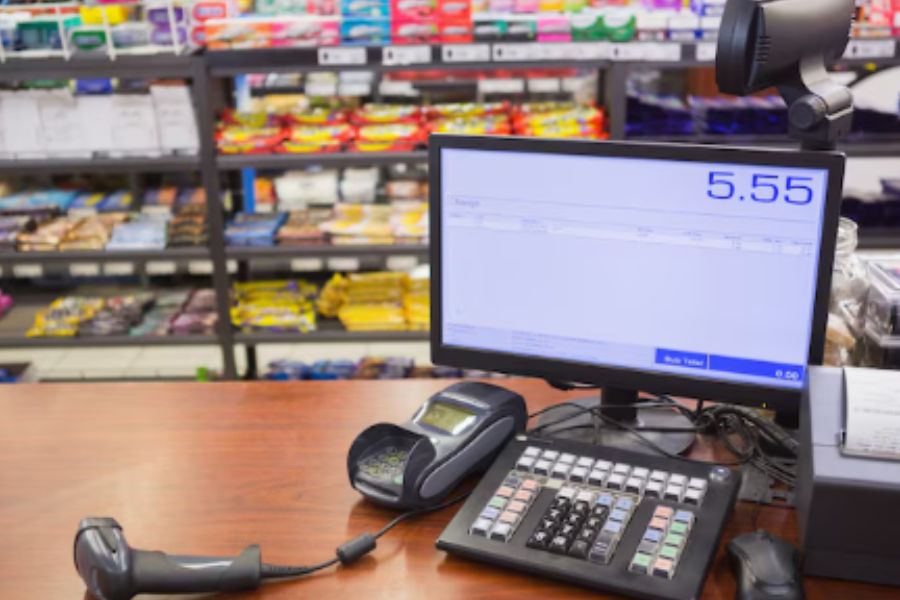Opening a grocery store can be a rewarding venture, providing a vital service to your community while also presenting a lucrative business opportunity. However, navigating the legalities and obtaining the necessary licenses can be a complex process.
This comprehensive guide will delve into the intricacies of what license do i need to open a grocery store, offering valuable insights and step-by-step guidance.
Understanding the Benefits of Starting a Grocery Store
Before understanding “what license do I need to open a grocery store?”, we should the benefits of starting a grocery store. Starting a grocery store can offer numerous benefits, both in the traditional brick-and-mortar setting and through the growing avenue of online grocery e-commerce.
Here are some key advantages highlighted in the provided sources:
Traditional brick-and-mortar grocery store:
- Stable demand: Grocery stores typically enjoy consistent and stable demand. People need to purchase food regularly, making it a recession-resistant business.
- Community connection: A physical grocery store can become a central point for the community, fostering relationships with residents. This can lead to customer loyalty and repeat business.
- Diverse product range: Grocery stores can offer a wide variety of products, including fresh produce, dairy, meat, packaged goods, and more. This diversity can attract a broad customer base.
- Instant gratification: Customers can immediately access and purchase products, providing instant gratification. This is particularly beneficial for perishable goods and last-minute shopping needs.
- Upselling opportunities: In-store experiences allow for effective upselling through product placement, promotions, and personalized customer interactions, driving additional sales.
- Hands-on customer service: Employees can provide hands-on assistance and customer service, addressing specific needs and building trust with customers.
Grocery E-commerce:
- Convenience: Online grocery shopping offers unparalleled convenience, allowing customers to order from the comfort of their homes and have products delivered to their doorstep.
- 24/7 accessibility: E-commerce platforms enable customers to shop 24/7, offering flexibility and catering to various schedules.
- Data insights: Online platforms gather valuable data on customer preferences, buying behavior, and trends. This information can be leveraged for targeted marketing and inventory management.
- Global reach: E-commerce eliminates geographical constraints, enabling a grocery store to reach a wider audience, including those in remote or underserved areas.
- Cost efficiency: Online grocery stores may benefit from lower overhead costs associated with physical spaces. Additionally, automation in processes can improve efficiency and reduce operational expenses.
- Personalization: E-commerce platforms can use data to personalize recommendations, promotions, and discounts, enhancing the overall customer experience.
In summary, whether operating a traditional grocery store or venturing into e-commerce, the grocery business offers stability, community engagement, and a wide range of opportunities. Combining the strengths of both models, such as offering online ordering with in-store pickup, can create a well-rounded and customer-centric grocery business.
What License Do I Need to Open a Grocery Store?
Embarking on the journey of opening a grocery store POS requires a strategic approach, and understanding the necessary licenses is a key component of this process. From local regulations to health and safety standards, obtaining the appropriate licenses is vital for the successful operation of your grocery store. Here are numerous tips to assist you in launching your grocery store:
Do Grocery Market Research
Before delving into the legalities, conducting thorough market research is imperative. Understanding your target audience, competitors, and the demand for specific products in your locality will influence the types of licenses you’ll need. Research will guide you in obtaining the right permits that align with your store’s offerings and customer preferences.
Make a Business Plan
Initiating any new business venture necessitates the development of a comprehensive business plan. Crafting a business plan is instrumental in charting the trajectory of your business’s success. It should encompass vital elements such as your business model, the identification of your target market, and financial forecasts, including the break-even point.
Extend the depth of your grocery store business plan by incorporating the following key components:
- Detailed elaboration of your business concept: Provide an in-depth description of your business idea, elucidating its unique features and the value it brings to the market. This section should showcase the distinctive aspects that set your grocery store apart from others.
- Cost and profit projections: Break down the anticipated costs and expected profits associated with your grocery store. Include comprehensive financial projections to offer a clear understanding of the financial viability and sustainability of your business model.
- Business size: Clearly define the scale and size of your grocery store business. This includes the physical space, staffing requirements, and overall capacity to meet market demands.
- Product portfolio: Outline the range of products you intend to sell. Provide details on the variety, quality, and uniqueness of your offerings, emphasizing how they align with the preferences and needs of your target customers.
- Target market analysis: Conduct a thorough analysis of your target market. Identify and profile your ideal customers, their preferences, and buying behavior. This will aid in tailoring your grocery store to meet the specific needs of your customer base.
- Competitive analysis: Assess the competitive landscape in which your grocery store will operate. Identify key competitors, analyze their strengths and weaknesses, and elucidate how your business will differentiate itself to gain a competitive edge.
- Location strategy: Address the location of your grocery store business. Evaluate the strategic significance of the chosen location, considering factors such as accessibility, foot traffic, and proximity to competitors.
- Anticipated challenges and solutions: Anticipate potential challenges that may arise in the course of your business operations. Offer viable solutions and contingency plans to mitigate these challenges, showcasing your preparedness for unforeseen circumstances.
- Exploration of potential grants: Investigate and outline potential grants or financial assistance programs that your grocery store may be eligible for. Highlighting these opportunities demonstrates your proactive approach to securing additional support for your business.
Form a Legal Entity and Setting up Taxes
Establishing a legal entity holds paramount importance for any business, and there are several common business structures to consider. These may include a limited liability company (LLC), sole proprietorship, corporation, or partnership. Opting for an LLC or a legal business entity is particularly significant as it shields you from personal liability in the event of legal complications or lawsuits against your grocery store.
Before commencing business operations, it is imperative to address federal and state tax obligations through diverse registration processes. To facilitate this, acquiring an Employer Identification Number (EIN) becomes a prerequisite. This unique identifier not only streamlines your tax-related processes but also ensures compliance with regulatory requirements.
Selecting the appropriate legal structure and promptly addressing tax-related formalities not only fortify the legal standing of your grocery store but also instill confidence among stakeholders, fostering a solid foundation for your business endeavors.
Establish Bank Accounts
Maintaining dedicated banking and credit accounts for your business is a fundamental practice essential for safeguarding personal assets. By creating this separation between personal and business finances, you establish a protective barrier in the event of legal action against your business.
Furthermore, having distinct business accounts contributes to business credit development, unlocking opportunities for credit cards and financing tailored to your business needs. This not only enhances your eligibility for higher credit limits but also secures more favorable interest rates. Additionally, a dedicated business bank account is a prerequisite when applying for a business loan, making it a pivotal component of your financial strategy.
Selecting the right bank for your small business is crucial, and exploring options among the best banks tailored to small enterprises ensures you make an informed choice.
Obtain Permits, Licenses, and Insurance
If you operate a food-based business, mandates acquiring specific licenses to ensure compliance with regulations. It’s important to note that these licenses may vary between states in Australia.
Additionally, registering for certain tax identifications is a crucial step in legalizing your operations:
- Goods and Services Tax (GST): If your annual turnover is projected to be $75,000 or more, obtaining a Goods and Services Tax (GST) license is imperative. This ensures that your business adheres to taxation requirements.
- Australian Business Number (ABN): An Australian Business Number (ABN) serves as an identification number for interactions with the Australian Taxation Office (ATO). It is an essential component of your business’s legal framework.
- Tax File Number (TFN): A Tax File Number, a unique nine-digit identifier, is utilized for tax-related matters and other Australian government systems. It’s noteworthy that you can have two separate TFNs, one dedicated to your business and another for personal use.
- Pay as You Go (PAYG): Registering for Pay as You Go (PAYG) is essential if your business has employees whose wages are subject to tax deductions. This ensures compliance with payroll taxation requirements.
- Fringe Benefits Tax (FBT): If you plan to employ staff and provide them with benefits such as onsite accommodation or private use of a work car, obtaining a Fringe Benefits Tax (FBT) license is necessary. This is a crucial consideration for businesses aiming to offer additional perks to their workforce.
Permits:
Before finalizing the location for your grocery store, thoroughly check whether the property possesses the necessary permits for such use. If not, you can apply to your local council for approval, although this might entail modifications to the premises.
Moreover, if your grocery store plans involve selling specific items like tobacco, alcohol, medication, fuel, or fresh meat and fish, additional specialized licenses will be required.
Insurance:
Securing the appropriate insurance is paramount for protecting your business. This encompasses coverage for potential liabilities, property damage, and other unforeseen circumstances. Adequate insurance safeguards your business and provides peace of mind in the face of potential risks.
In summary, obtaining the requisite licenses, registering for tax identifications, ensuring property permits, and securing comprehensive insurance coverage are pivotal steps in establishing and maintaining a legally compliant and thriving grocery store business in Australia.
Invest in the Equipment You Need, especially a Modern POS System
Equip your grocery store with the necessary tools and infrastructure. This includes shelving, refrigeration units, cash registers, and other essential items. Ensure that all equipment meets safety standards and regulations.
Implementing a modern POS system streamlines transactions and enhances customer experience. A robust POS system not only handles sales but also tracks inventory, simplifies bookkeeping, and provides valuable data for decision-making.
Market Your Store and Establish Your Brand
Create a strong brand identity and implement effective marketing strategies to attract customers. Utilize both traditional and digital channels to promote your grocery store. Social media, local partnerships, and loyalty programs can contribute to building a loyal customer base.
FAQs: What License Do I Need to Open A Grocery Store?
What Is a Grocery Store?
A grocery store is a retail establishment that provides a wide range of food and household products to consumers. These products typically include fresh produce, dairy items, meat, packaged goods, and other essential items. Grocery stores can vary in size and specialization, ranging from small local markets to supermarkets or hypermarkets.
What is the Profit Margin for Grocery Stores?
The profit margin for grocery stores can be influenced by various factors such as location, size, and product mix. On average, grocery stores aim for a profit margin of 1% to 3%. However, this figure can vary based on the specific business model, with some specialty stores achieving higher margins.
What Products in Grocery Stores Make the Most Profit?
Certain products tend to have higher profit margins in grocery stores. These include:
- Organic and specialty items: Consumers are often willing to pay a premium for organic and specialty products, contributing to higher profit margins.
- Prepared foods: Ready-to-eat or prepared foods, such as deli items and grab-and-go meals, can have higher profit margins compared to traditional grocery items.
- Private-label products: Offering store-branded or private-label products allows grocery stores to capture higher margins, as these products are exclusive to their brand.
- Local and exclusive offerings: Products sourced locally or exclusive to a particular store can attract customers willing to pay premium prices, contributing to increased profitability.
How Much Does It Cost to Open a Local Grocery Store?
The cost of opening a local grocery store can vary widely based on several factors. These factors include:
- Location: The cost of real estate and lease agreements significantly impacts the overall investment. High-traffic areas or urban centers may have higher costs.
- Store size: The physical size of the store influences construction costs, interior design, and the amount of inventory needed.
- Inventory: The range and type of products offered affect the initial investment. Specialty or organic products may have higher procurement costs.
- Equipment and technology: Investing in modern equipment, such as refrigeration units and a point-of-sale (POS) system, is essential and contributes to the overall cost.
- Licenses and permits: Obtaining the necessary licenses and permits may involve fees, adding to the upfront expenses.
Conclusion
What license do I need to open a grocery store? Opening a grocery store involves a multifaceted approach, from understanding the market to complying with legal requirements. By conducting thorough market research, creating a comprehensive business plan, and obtaining the necessary licenses and permits, aspiring grocery store owners can set themselves on the path to success. Remember to continuously adapt to market trends, embrace technology, and foster a strong brand presence to thrive in the competitive grocery industry. Contact us today if you have any questions.



